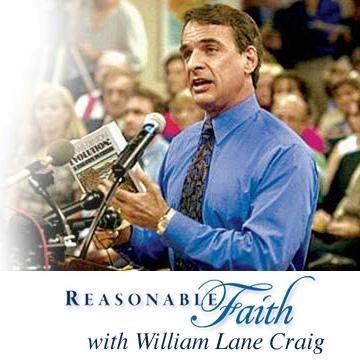Reasons for Divine Commands
Reasonable Faith Podcast
William Lane Craig
4.7 • 1.5K Ratings
🗓️ 25 April 2022
⏱️ 16 minutes
🧾️ Download transcript
Summary
Transcript
Click on a timestamp to play from that location
| 0:00.0 | Music |
| 0:16.0 | Bill, we're going to look at an article from David Baggett and before we do talk about your work with David Baggett. |
| 0:23.0 | David Baggett is a Christian philosopher who has truly distinguished himself |
| 0:29.0 | in the area of theistic based ethics. He has written about five different books with Oxford University Press, |
| 0:41.0 | the Premier Academic Publisher, defending the view that objective moral values and duties are rooted in the nature and commands of God. |
| 0:54.0 | And I had the privilege last fall of team teaching of course with Professor Baggett at Houston Baptist University where he is a professor of philosophy. |
| 1:04.0 | This article is reasons for divine command and he's talking about divine command theory of ethics. We will get into that here. His article begins. |
| 1:16.0 | Recently, I came across a couple of similar but subtly different critiques of divine command theory. Both came from philosophers, our respected great deal, though neither is a theist. |
| 1:28.0 | One came from Ruth Shiver Landau and here's a succinct formulation of the argument. One, either God does not have reasons for his commands or he does. |
| 1:39.0 | Two, if he does not, then morality is entirely a function of divine command, rendering morality whatever he wills it to be, which is to say it is altogether arbitrary. |
| 1:51.0 | Three, on the other hand, if God were to have reasons for his commands, then those reasons rather than God's commands would be why we have the obligations that we do. |
| 2:03.0 | Four, so morality is either arbitrary or it is not the divine commands that are the real reasons for the obligations. |
| 2:14.0 | This is from whatever happened to good and evil. Bill, what do you think of that argument? |
| 2:19.0 | Well, I think it's an odd argument as we'll talk about later. It seems to think that moral obligation arises from God's having certain reasons for commanding what he does. |
| 2:34.0 | But it seems to me that it is the command itself that imposes an obligation upon us. |
| 2:44.0 | Obligations arise from imperatives issued by a qualified authority and if those imperatives are not issued, then I can't see that any obligation arises. |
| 2:59.0 | Imagine, for example, that God had reasons to command something, but he just kept those reasons to himself and never actually commanded anything. |
| 3:10.0 | Would we be under obligation? In that case, to do it, I can't see that we would. It seems to me that the notion of a command is essential for the reality of obligation. |
| 3:27.0 | David continues, quoting, the other argument is from Michael Humor, which he articulates as follows. |
| 3:33.0 | Why does God command what he does? If God has no moral reasons for his commands, then they are merely arbitrary and why should we obey arbitrary commands? |
| 3:44.0 | But if God has moral reasons for his commands, then some moral truths must exist independently of his commands, either way the divine command theory is false. |
| 3:57.0 | Bill, that seems to be a dilemma for divine command. |
... |
Please login to see the full transcript.
Disclaimer: The podcast and artwork embedded on this page are from William Lane Craig, and are the property of its owner and not affiliated with or endorsed by Tapesearch.
Generated transcripts are the property of William Lane Craig and are distributed freely under the Fair Use doctrine. Transcripts generated by Tapesearch are not guaranteed to be accurate.
Copyright © Tapesearch 2025.

